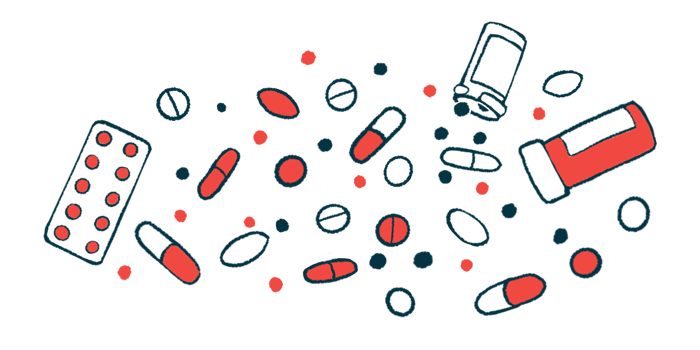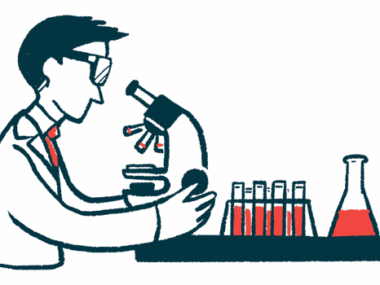PWS Caregivers Trade Risk of Treatment Side Effects for Less Hyperphagia
Written by |

In return for a reduction in the abnormal hunger and excessive eating, called hyperphagia, that characterizes Prader-Willi syndrome (PWS), caregivers of patients with the rare genetic disease — even many who did not identify as risk-takers — are willing to accept medications with a potential for side effects, including skin-picking and liver damage, a study reports.
Given that “concerns persist regarding the meaningfulness of hyperphagia as a clinical endpoint” or goal in therapy development, these findings highlight the need for PWS treatments to control insatiable hunger, according to the researchers.
“Although two-thirds of caregivers did not identify as risk-taking, preference findings indicated that caregivers would accept a higher risk in side effects of skin-picking and liver damage in exchange for improvements in hyperphagia,” the researchers wrote.
However, the team noted that “preferences varied across caregivers,” and were impacted by the age of the patient, whether hyperphagia was a symptom, and by other quality of life issues.
“Given the uncertainty and risks in emergent treatment options for targeting hyperphagia, there is an urgent need to investigate the benefit-risk tolerance of the PWS community,” they wrote.
The study, “Measuring Meaningful Benefit-Risk Tradeoffs to Promote Patient-Focused Drug Development in Prader-Willi Syndrome: A Discrete-Choice Experiment,” was published in the journal MDM Policy & Practice.
One of the hallmark symptoms of PWS is hyperphagia, which is characterized by an uncontrollable urge to eat, never feeling full, and binge eating. Previous studies have shown that PWS caregivers consider treatments for hyperphagia a high priority — even higher than those for obesity. However, therapies that address this problem are still lacking.
Since treatments that may ease hyperphagia and weight gain are currently being developed, researchers are interested to know how they may impact patients’ quality of life. In addition, drug developers need to determine how hyperphagia is perceived in the PWS community and which risks, in terms of medication side effects, would caregivers be ready to accept in exchange for fewer and less severe hyperphagia symptoms.
To address these knowledge gaps, a team of U.S. researchers conducted a discrete choice experiment survey. In these surveys, participants choose between two hypothetical medications so that researchers can assess which characteristics of the therapies are perceived as most important.
The caregivers asked to complete this survey were recruited through the PWS Clinical Trial Consortium, the PWS Global patient registry, and sources such as the Foundation for Prader-Willi Research, and the Prader-Willi Syndrome Association USA.
The respondents examined 12-month clinical trial results from hypothetical medications and then were asked to choose which was better for their PWS family member.
The benefits of these treatments were indicated as no improvement in hyperphagia, or 5-point and 10-point reductions on the Hyperphagia Questionnaire for Clinical Trials (HQ-CT) scale. These hypothetical medications also were associated with the risk of side effects, including skin rash and liver damage.
A total of 468 caregivers, who were mainly parents (97.4%) and women (83.5%), completed the survey. The mean age of the patients was 15.6 years, with an age range of 4 to 54. The genetic causes of PWS were paternal deletion (48.9%), in which genetic information is missing from the copy of chromosome 15 inherited from the father, or uniparental disomy (38.5%), in which two copies of a chromosome come from the same parent.
Most PWS patients (68%) had hyperphagia, according to their caregivers. The caregivers of these patients were older, had a lower income, and were less likely to be privately insured than those of people without hyperphagia.
Patients with hyperphagia were older than those without this symptom (18 years vs. 10 years), “consistent with a natural history study showing an average age of onset of ‘Phase 3′ hyperphagia of 8 years old,” the scientists wrote. They also were more likely to be overweight than patients without hyperphagia and to have skin picking behaviors.
The survey’s findings revealed that caregivers of those without hyperphagia would accept greater weight gain as a side effect than caregivers of patients with this symptom (16.4% v. 8.1%). They also were more accepting of a higher risk of skin rash compared with caregivers of patients with hyperphagia (11.7% v. 6.2%).
Notably, caregivers of patients with hyperphagia were open to a higher risk of liver damage compared with caregivers of the group without excessive eating.
Moreover, the team noted that caregivers of either group were willing to accept risks of obesity, skin rash, and liver damage in exchange for a 5-point reduction in HQ-CT.
Of interest, a previous study testing an investigational medication called beloranib in PWS patients had established that a 7.7-point decrease on the HQ-CT represents a meaningful change.
“Through the choice experiment presented in this large, community-engaged, sample, caregivers of people with PWS expressed their willingness to accept risks in exchange for smaller degrees of improvement in hyperphagia than previously thought to be meaningful—namely, that a 5-point change in HQ-CT constituted meaningful benefit,” the team concluded.
Overall, controlling hyperphagia was found to be a key goal for caregivers.
“We quantified PWS caregivers’ benefit-risk profile and demonstrated that PWS caregivers have a significant risk tolerance in exchange for improvements in hyperphagia,” the researchers added.







